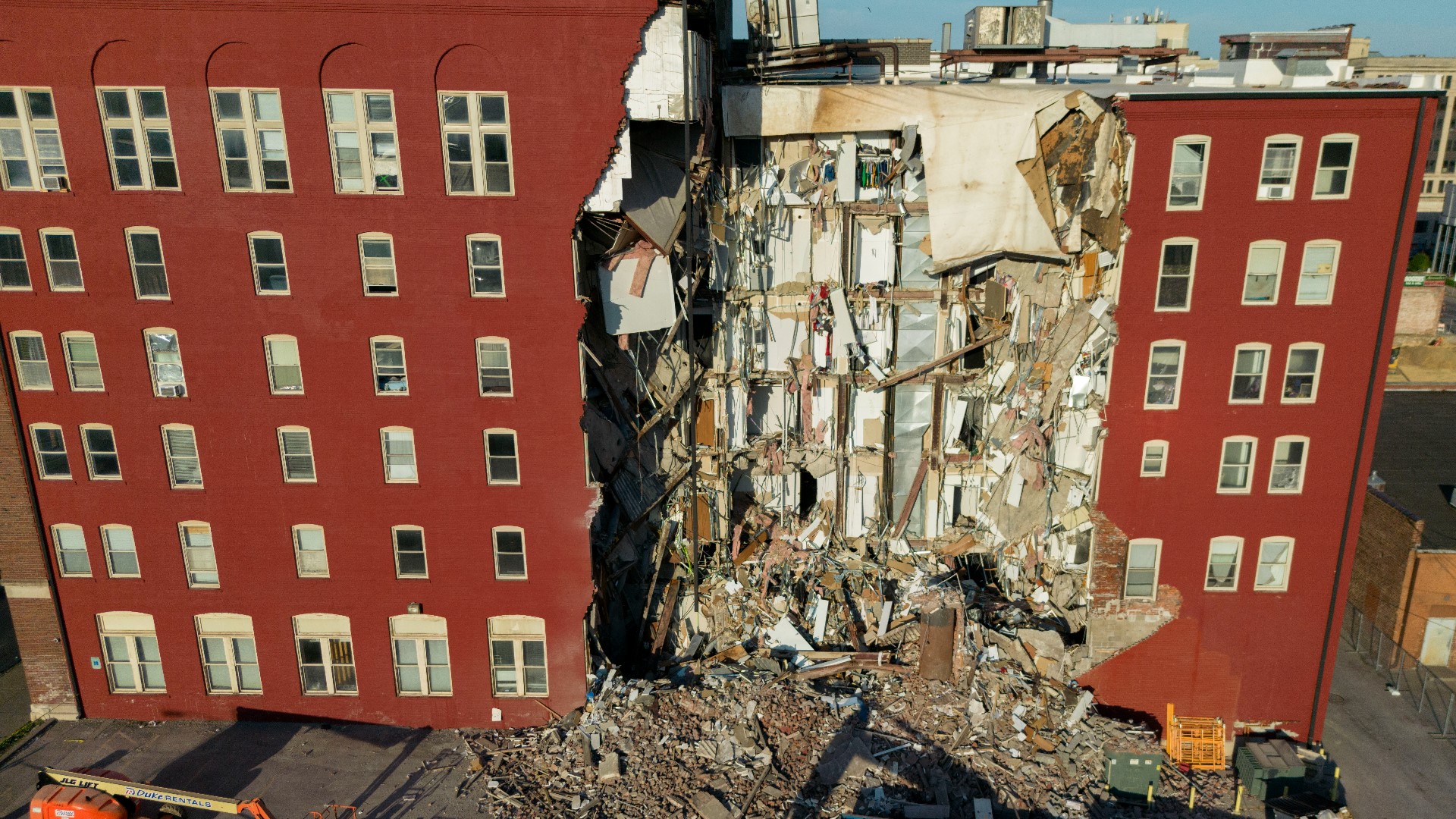DES MOINES, Iowa — Three lawsuits have been filed by residents of a collapsed building in Davenport, accusing the city and the building's owners of failing to keep tenants safe.
The suits allege that both the city and the building's owners knew about the building's deteriorating conditions and failed to warn residents of the risk.
The Davenport building collapse is just one tragic example of how poor living conditions can drastically impact tenants, a problem all too common for many Iowans.
If you are looking to rent an apartment or other property in Iowa, Local 5 is On your Side. Here's what you need to know about tenant rights in the state.
What to ask before you rent
Whether it's an apartment, a duplex or a home, there are some important steps you need to take before signing your rental agreement.
"When you out to rent a place, you should take all the steps that you do if you're going to buy a car or hire a contractor," said Chris Coleman, president of the Better Business Bureau serving greater Iowa.
The first step is to research. There are many resources in Iowa that future renters can take advantage of. For one, all rental properties in the state of Iowa must have a rental certificate on file with the city.
"We encourage everybody to ask for that rental certificate, make sure that it's enforced and it's in good standing," Coleman said. "Because without that, you're going to be moving into a place that first, is illegal, and second off, has something significantly wrong with it."
In addition to the rental certificate, the city will likely have public information regarding the history of the property.
Beyond working with the city, prospective tenants of multi-unit facilities should try to meet with current residents. Coleman encourages people to ask the landlord for references and referrals.
Finally, Coleman urges future renters to be aware of online scams. Often, these scams will ask tenants to pay their first month's deposit or upfront cost through a cash app.
"Don't pay up front with that, because it's a typical scam that landlords are getting money out of potential residents," he said. "And oftentimes, there is no property. There is no unit. You're just out that money."
Dealing with poor living conditions
Nick Smithberg, executive director of Iowa Legal Aid, said about half the organization's cases involve landlord-tenant law. Issues with living conditions are often a top concern.
"People always say, 'Well, why are people living in these conditions?'" Smithberg said. "And it's not because they're making a bad choice or an uninformed choice. It's because they don't have any other choice. There's such a shortage of affordable housing."
Smithberg notes that while everyone has a right to a habitable living space, tenants have limited options when it comes to getting the help they need.
He has two pieces of advice when it comes to dealing with issues in your apartment or rental.
"Number one, do not simply stop paying the rent, that is a very risky thing to do," Smithberg said. "Number two, document everything: make a demand of the landlord, keep a copy, take pictures ... you need to really make a record of when it happened and what the problem was."
Smithberg also encourages people in cities to contact the building inspector. The inspector will have the legal authority to order the landlord to make certain repairs.
"One thing that we're encouraging people to do in different cities is more aggressively use the authority of the building inspector to revoke the rental license of a landlord who has serious condition problems, which would then prevent them from suing in court for an eviction."
In the future, Smithberg hopes to see movement in terms of expanding affordable housing options and empowering tenants.
"When you're talking about substandard housing conditions, you're talking about poverty," he said. "And the problem is that people don't have the means to make choices."
If you are in need of legal support or emergency relief, contact Iowa Legal Aid for support.

